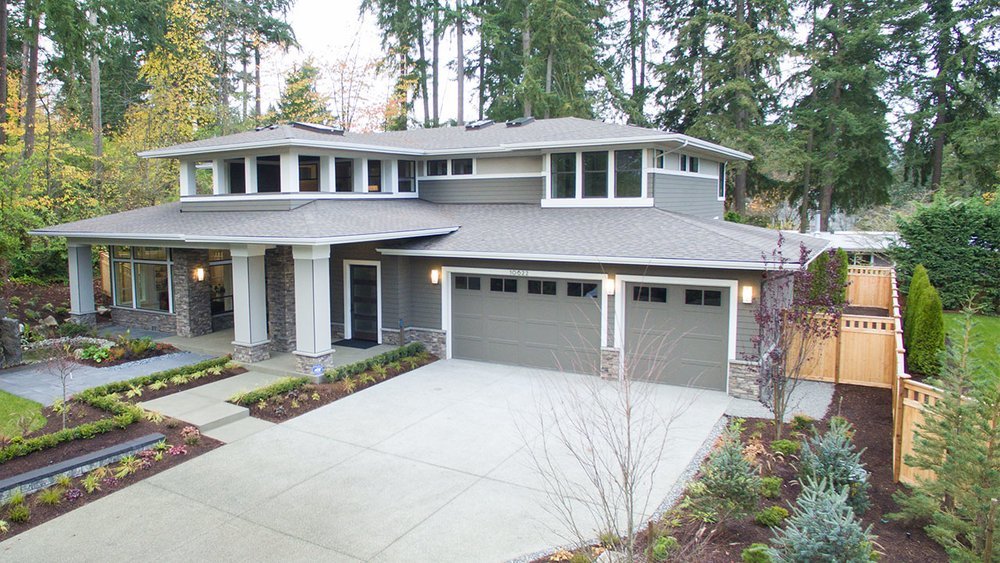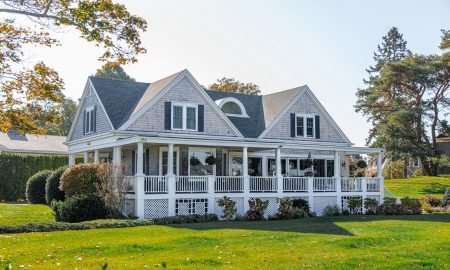
Common Mistakes to Avoid When Buying a Retirement House

Making a mistake in your choice of retirement home can have detrimental effects on your finances as well as your emotions. It is commonplace for people to nurse the idea of buying a retirement home in specific geographical locations due to the particular weather, the environment and different leisurely activities existing in those areas.
However, these are the least of the things to look out for when planning to buy a retirement home.
As exciting and desirable as it may be to retire in some of these dream locations, relocating to a new requires that you have a well-thought-out plan based on a careful consideration of some essential factors.
Thus, there are common mistakes which you should endeavor to avoid when considering your retirement home. These include:
1. Do not make aesthetics and Weather conditions your sole determinants
When making decisions about your retirement home, you need to look beyond the location’s scenery. As noted by Ben Barzideh, a wealth advisor at Piershale Financial Group, living in a sunny location on retirement may seem like a great idea, but it might not be so glamorous in real life.
Barzideh explained that there were people who bought retirement houses in such locations but ended up becoming miserable and bored and going back to their former areas. He added that those people had to sell those houses and some even recorded losses on the sale. Thus, Barzideh suggests that an essential consideration should be the access to healthcare services in such locations.

An essential consideration while purchasing a retirement home is how accessible healthcare services are in the selected location
Similarly, Dan Routh, associate advisor at Exencial Wealth Advisors, suggested that those who have been living in a place with an entirely different climate from what they are accustomed to should try and rent an apartment in such locations before making a permanent decision of purchasing houses there.
Routh also reiterates the importance of selecting an area where one can get access to all one needs to enjoy retirement. For instance, if the person would love to live near to kids and grandkids, Routh is of the opinion that living in a place farther from family and airport might not be the best option.
2. Do not select a home unsuitable for aging/aged people
It is an extreme disservice to purchase a massive “retirement” home that has several stairs. Purchasing a house with several stairs might be a terrible decision for when you get older because if you buy a house that is not age-friendly, you might end up selling it.
If you do not sell, you may subsequently need to upgrade the home features at an expensive rate, and that can be avoided by making the right choice from the onset. Thus, Bryan Bibbo, a financial advisor at JLSmith Group advised people to consider purchasing a retirement house that has a master bedroom as well as a bathroom on the ground floor.

You may end up selling a retirement home which lacks age-friendly features or upgrading the features at an expensive rate
3. Do not put all your cash into buying the retirement house
A general recommendation from financial planners is to avoid purchasing a retirement house with cash. Some planners suggest that cash could be used for a substantial down payment, but a mortgage should subsequently be taken out on the property if possible.
Although it is common for people to want to retire with no debt or mortgage hanging over them, it has, however, been advised that putting all one’s cash into a new house may not be advisable as such money cannot be used for something else. With low rates on mortgages, Routh advises people to take out mortgages instead.
4. Failing to put long-term housing costs into consideration
When buying a retirement home, it is essential to decide if you can afford the housing costs upon retirement. As much as it has been advised to take out a mortgage, Bibbo has stated that one shouldn’t exhaust one’s resources. Long-term housing costs go beyond the mortgage payment and include other monthly housing costs such as real estate taxes and sometimes maintenance fees in some locations. You should consider your ability to afford those costs before you pay for any retirement house.
Financial advisors have also advised that for real estate purposes, having an emergency fund is also essential. This fund is what would be used for maintenance, and it should, therefore, be a fund which isn’t in the market and has a stable value.
5. Failing to consider the attendant tax implications of your choice
The taxes to be paid in the new location are also things to put into consideration. Check out your sales taxes, real estate taxes and even how taxes on your retirement income would be calculated. Also, Check if the state taxes social security income and pension, determine the state tax laws and the effect they could have on your existing taxes.
In Conclusion, before you buy that retirement house, make sure your choice wouldn’t cause you financial and emotional headaches in the long run.
More in Advisor
-
`
Streaming Giant Netflix Faces Yet Another Challenge
In the ever-evolving landscape of streaming entertainment, Netflix, once the unchallenged king of digital content, now faces a complex puzzle beyond...
December 1, 2023 -
`
Signs You Should Quit Your Current Job & Move On
You Don’t Feel Comfortable at Work Imagine spending the majority of your waking hours in a place where you feel uneasy,...
November 20, 2023 -
`
How to Adjust and Renew Your Portfolio
Investing in the financial world is like navigating an ever-changing landscape—constantly evolving, always shifting. The key to staying on track? Regularly...
November 18, 2023 -
`
Dr. Dre’s Divorce With Nicole Young: A Closer Look
When the beats of old-school hip-hop start bumping, Dr. Dre’s name reverberates in fans’ minds worldwide. Born as Andre Young, this...
November 12, 2023 -
`
Why Branded Content Is the Best Way to Connect With Your Audience
Have you ever found yourself deep in a compelling article or engrossed in a video series, only to later discover that...
November 5, 2023 -
`
Why the Gender Pay Gap Could Be Getting Worse | New Research Findings
At a time when women are making significant strides in various professional arenas, a new report throws light on a trend...
October 28, 2023 -
`
What Is a Bull Market and How Can Investors Benefit From One?
In finance, the term “bull market” is frequently used to describe a period of optimism, rising asset prices, and investor confidence....
October 19, 2023 -
`
A-List Power Couples Where the Women Make More Money
In an era of shifting gender roles and evolving definitions of success, it’s increasingly common to find celebrity couples where the...
October 15, 2023 -
`
Massive Price Cuts: Tesla Only Witnesses ‘Modest’ Sales Gain in China
Cutting Down Prices, But Not Cutting the Mustard? Summer 2023 brought with it a promise of sunshine and relaxation. For Tesla...
October 8, 2023















You must be logged in to post a comment Login